WANTS vs NEEDS... A Secret to Job Satisfaction?
Sep 29, 2023
It's that time of year again, when we see final-year university students beginning to explore employment opportunities, not to mention established clinicians are often getting over the EOFY hump and reflecting on where they want to be moving forward.
Whilst you will never know 100% if a job is right for you until you're in it, there are a number of things you can reflect on and consider to help better identify if the job has the potential to align with what you need to thrive in the role.
Today we're getting a little philosophical, sharing a few ideas from a 90,000+ word project I have underway (more on this another time), and exploring a few of the elements I discuss with students & colleagues when they are seeking my advice regarding pursuing certain employment opportunities.
Let's unpack this so YOU can develop clarity regarding if this employment opportunity may be right for you.
The common question:
"Should I take this job?"
The common answer:
"Well, it depends on ___________________."
The decision to accept a job isn't merely a professional choice; it's a decision that can significantly influence your personal life and your overall well-being.
There are countless papers and conceptual frameworks that explore the relationship between certain elements of a job and their impact on job satisfaction, job performance and an individual's well-being.
Wants vs Needs
Firstly, the concepts of "wants" and "needs" are fundamental to understanding our decision-making, our priorities, and what will contribute to our own personal satisfaction.
Needs aka: the essentials. These are our non-negotiables that must be present at a bare minimum for us to accept an employment opportunity.
Wants aka: desires beyond your non-negotiable needs.
These are the 'enhancers', things that add to your satisfaction and fulfilment beyond the bare essentials.

Whilst some of the needs will be universal, there are others that will vary from person to person.
When it comes to wants, as these are less about job compatability and more about the 'enhancements', I won't be exploring these within this article.
Exploring your needs, at a bare minimum, I would encourage you to ask yourself the following questions when considering an employment opportunity, and then we will unpack why they are important questions to consider.
-
Does the remuneration cover my basic living needs?
-
Is the job stable, safe and secure?
-
Does the workplace culture resonate with my values?
-
Will I be recognised, supported and validated for my work?
-
Are there growth opportunities within this role?
In 1943 American psychologist Abraham Maslow proposed a theory of human motivation, commonly referred to now as Maslow's Hierarchy of Needs (read more here).
The hierarchy outlines 5 levels of needs that contribute to an individual's motivation and fulfilment.
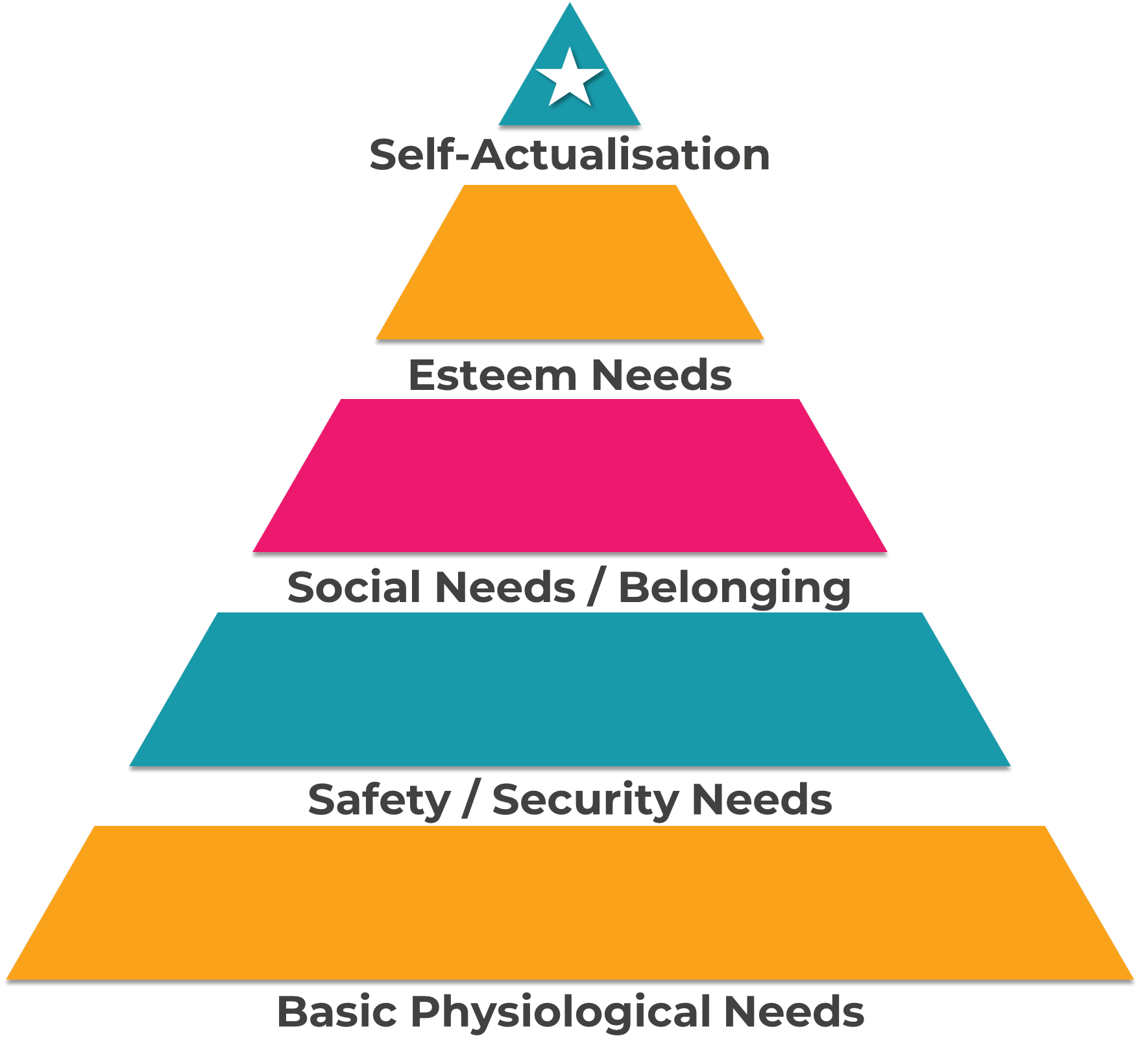
Maslow's Hierarchy (adapted from Maslow, 1943)
The basic premise of the motivational hierarchy is that for an individual to be motivated to progress to the next level there must be a level of fulfilment of the tier below.
For a number of years, this theory of human motivation has been applied to occupational settings, and whilst there are other factors that may exist outside of the hierarchy that contribute to a person's workplace fulfilment, it's a good starting point for self-reflection and developing an understanding of the compatibility of a person to a workplace role.
When we see the hierarchy applied to occupational settings, it is often referred to as Maslow's Hierarchy of Employee Engagement (Soni, 2013).
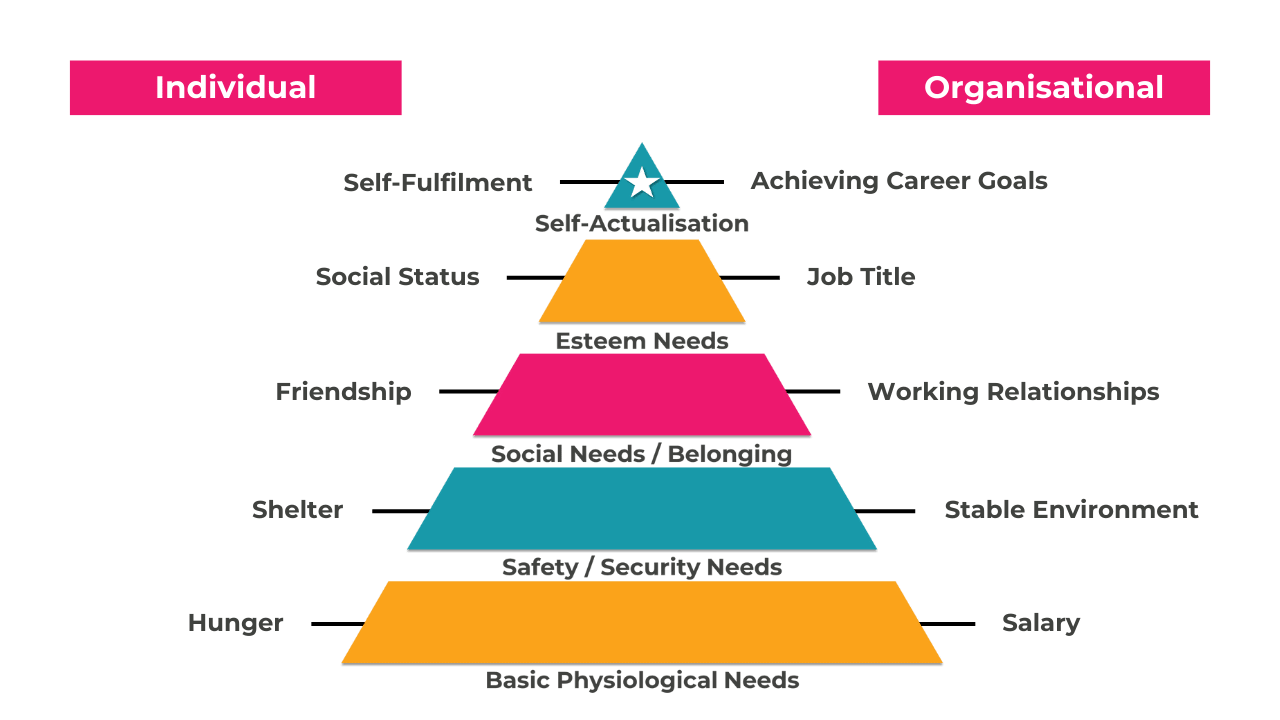
Maslow's Hierarchy of Engagement (adapted from Nguyen, 2020 & Soni, 2013)
Self-Reflection & Exploration
Now we have a basic understanding of the hierarchy, let's unpack the questions we outlined earlier.
1. Does the remuneration cover my basic living needs?
Everyone requires a varying level of income to sustain themselves & and their lifestyle.
Not the bells & whistles, remember, this is your minimum requirement.
Before considering a position, you must evaluate if the remuneration aligns with your essential financial needs.
How much will I be paid?
Calculate all of the essentials that you (and dependents, if you have them) need to exist. Rent/mortgage, vehicle/commute expenses, bills, food etc.
Will I be required to do work out of hours &/or unpaid work?
Yes, there may be times where some work may run over and this may bleed into your time.
However, a once-off or rarity is very different to an ongoing obligation and expectation - disengagement can breed very quickly here.
This is an important consideration if you are working multiple jobs, as unpaid time from one role detracts from your ability to earn money from another - your time is money
Whilst this is a personal decision, I very much DON'T agree with there being an expectation of employees to do unpaid work (this includes workplace meetings) or have work encroach on their personal lives.
Remember, you're an employee NOT a volunteer.
Employers need to stop expecting their employees to have the same level of dedication to their business as they do. It's your business baby, not theirs!
How frequently will I be paid?
Whilst this consideration does not hold the same weight for everyone, it really depends on a person's ability to budget.
Does the frequency of payment align with your existing financial commitments (eg: mortgage repayments) or is there an ability for you to adjust your commitments to ensure they can align?
Do you have fortnightly mortgage payments and will be paid monthly? Do you have the discipline to budget your entire month to factor in payments and not be living on 2-minute noodles for the last week of the month?
If you are being offered a commission-based agreement, is there any guarantee of base income or are you comfortable with the realistic potential that your income could be $0?
For example; when Covid first struck and we were faced with significant restrictions & lockdowns, I was working in a sports clinic. No sport = no clients = no income.
How far is the commute? and what method of transport?
Whilst this isn't necisarrily a strict financial element, it is one of the most important elements we need to consider.
A commonly seen quote is "An additional 20 minutes of commuting per day has the same negative effect on job satisfaction as receiving a 19% pay cut."
There is a lot of nuance to this topic, as there are various factors that influence the positive or negative effects of commuting, and these will be highly individual.
Regardless, if commuting is on the cards for you, I would highly recommend reading The Commuting and Wellbeing Study here.
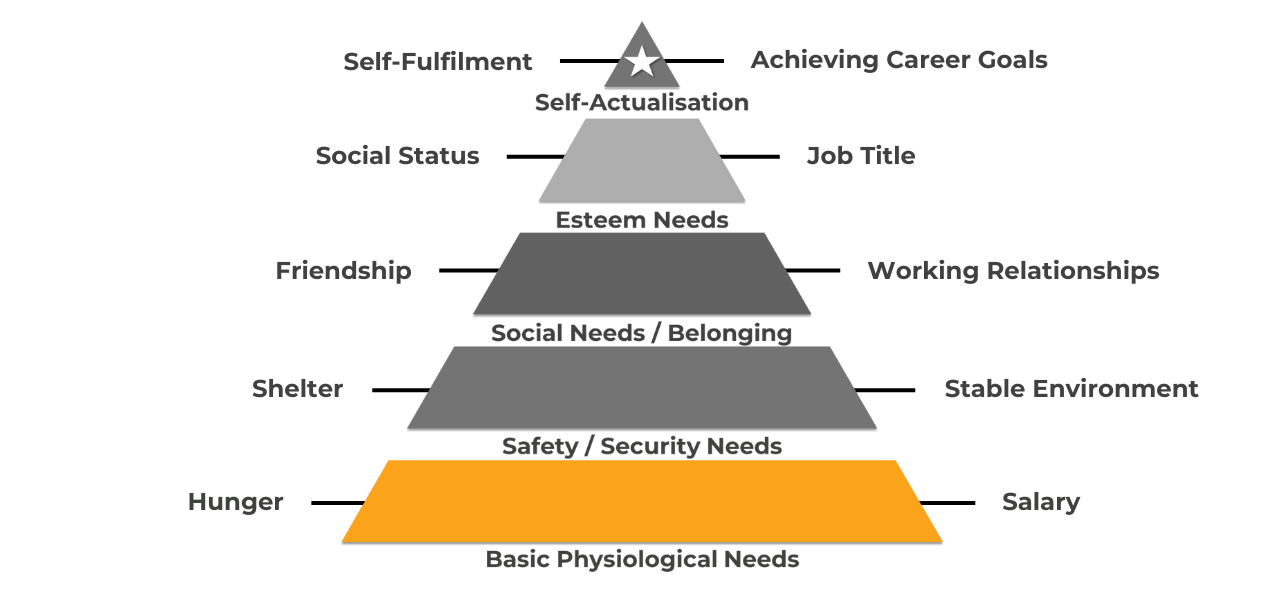
2. Is the job stable, safe and secure?
There are fairly distinct differences between working in the public vs private sector in healthcare. However, many of these considerations can apply to both employment streams.
Similar to the commission-based agreement mentioned above, will I have stable, regular days/hours?
Are you able to plan your life around set hours?
Are there definite days/times that you can't work due to family or outside commitments? Does this role allow me to work around these?
Are the roles, responsibilities of staff & my goals clearly defined?
Whilst not every single thing within our day-to-day lives requires structure, monotony is also an engagement killer.
There are elements within our workplace that require standardisation & procedures to ensure we aren't walking into a stressful sh*t show every day (more on that here).
Does everyone know who is meant to do what?
Are the policies & procedures in place for the everyday running of the business?
Are there KPIs? Are these stable metrics or do they change on a whim?
Tip: The onboarding process is a very good indicator of how well an organisation will provide stability, clarity and structure across all levels of the hierarchy, especially as you move through the upper tiers.
If there's a poor onboarding, you can almost guarantee that much of the day-to-day running of the organisation is on the fly.
How far ahead of time will I know if my contract is being extended?
If you are working in a contract role, how much notice will you be given regarding contract renewal or termination (excluding termination for misconduct etc).
This is an important consideration for those who require financial stability.
Not to mention that uncertainty in itself "Am I still going to be working here next week?" can be quite damaging to your sense of value in the workplace.
Will your safety be put at risk in any way?
Will you have to work with clients who may pose a risk to your physical safety?
Are there safety measures in place if this is the case?
For example, will you be working within a care facility with those sufferring dementia? Do any of the residents have a propensity for physical attacks?
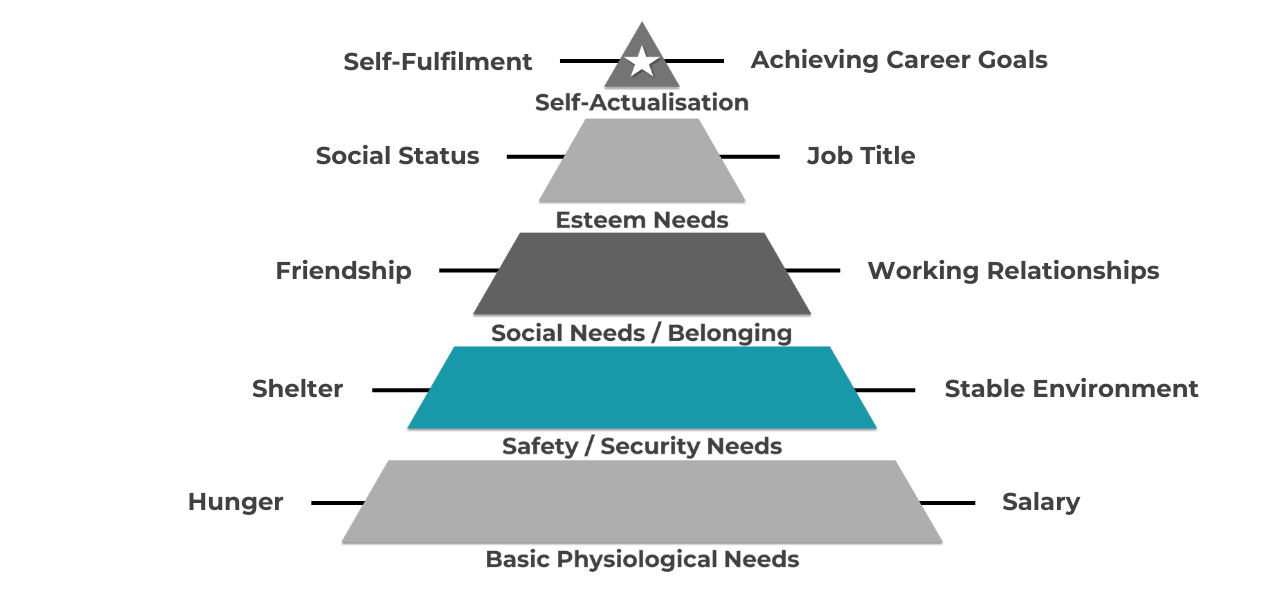
3. Does the workplace culture resonate with my values?
This is where we begin to see large differences between individuals regarding suitable working environments.
What suits one person may be complete nightmare fuel for another.
At the core of every organisation is its culture - the set of shared beliefs, attitudes, values, goals and practices that define it.
For individuals, our values serve as our compass.
They guide our behaviours, our decisions, and our interactions.
Some of these elements will be relating to the business practices of the organisation, others will be relating to the internal workplace relationships.
Overall, they align to the social needs of the hierarchy.
Before you can determine if a workplace's culture aligns with your values, you need to have an understanding of what your values are.
For example, integrity, honesty, altruism, autonomy, collaboration, growth & continuous learning.
When our values align with an organisation's, it fosters a harmonious & fulfilling employment relationship.
When it doesn't it can erode our sense of well-being.
Whilst not an exhaustive list, some of the core elements of workplace culture are listed below, and they also contribute to the higher elements of the hierarchy:
Mission & Vision
The organisations purpose and long-term goals.
How do they work to best serve their clients/patients?
Do they resonate with what you believe in and how you want to best serve your clients?
Leadership Style
Will you have a manager (often a top-down managerial approach), or will have have a leader (often a more supportive, democratic organisation).
This can often be hard to determine until you're in the role, but typically you will get a sense of the type of leadership you will have based on interactions throughout the application process.
Communication & Connection
Is open dialogue encouraged?
How transparent are processes and decisions?
Are there processes/pathways in place for concerns, grievances and/or decision-making?
Often an easy way to guage the communication style of an organisation is its approach to employee reviews (firstly, do they have them, and secondly, what do they state their purpose is).
When it comes to connection, this is highly individual and our social needs and beliefs relating to how we interact with our colleagues are quite different (for simplicity's sake, think introverts, ambiverts and extroverts).
Are you someone who loves to connect with your colleagues outside of work in various social engagements?
Do you enjoy team building activities?
Are you someone who likes to leave work at the door and whist you enjoy working with your colleagues, you don't have a need to integrate them into your social lives?
Recognition and Rewards
How does the organisation acknowledge hard work and achievement?
This is where we see a great difference in our work 'love languages' and progressing up the hierarchy.
Some people thrive in organisations where hard work is rewarded via bonuses and financial incentives.
Others thrive in organisations where they are complimented and recognised for their hard work, a financial bonus or incentive may mean little to them (remember, their basic financial needs have been met earlier in the hierarchy).
Work-Life 'Balance'
Does the organisation respect boundaries and prioritise employee well-being by respecting these?
Refer to the earlier section on hours, unpaid work etc.
For example: when I was having a discussion with two senior managers about wanting to leave my workers compensation role, they asked what was it that was making me so unhappy, why I wanted to leave and why they couldn't keep health practitioners within these roles. My answer was "the role has given me a cumulative moral injury".
Dramatic? No. When you work within an organisation that its daily operations, expectations and values are not aligned with your ethos, it has the potential to erode your sense of purpose, your ability to generate meaning from your work, and your overall satisfaction.
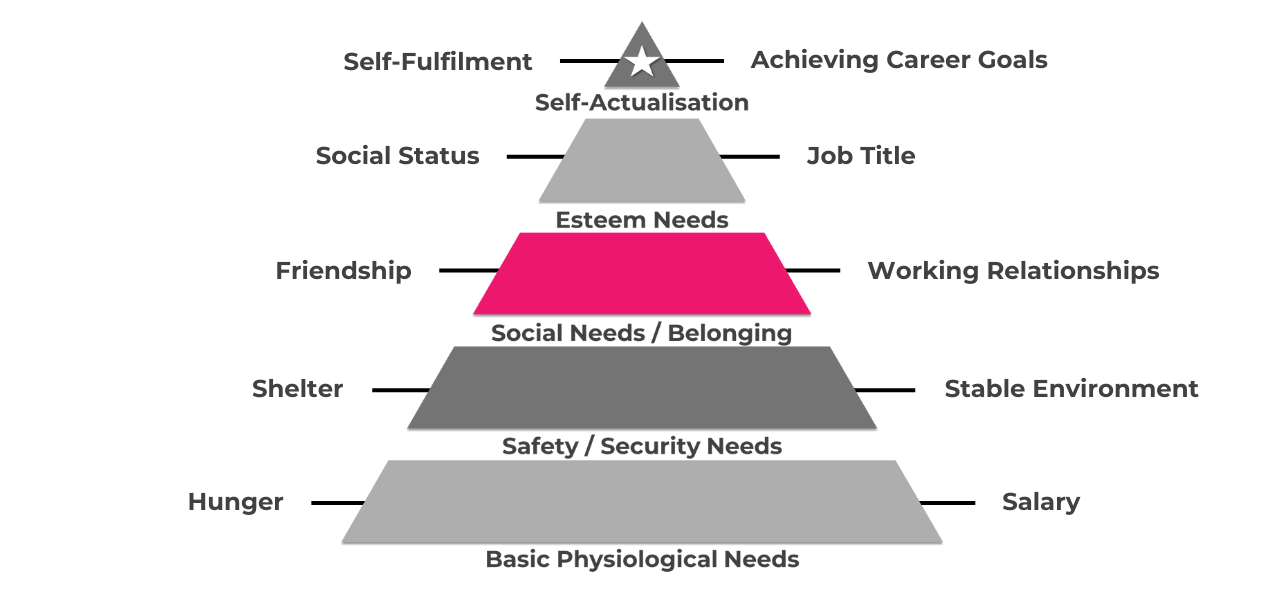
4. Will I be recognised, supported and validated for my work?
As you can see, lower levels of the hierarchy build the foundation towards the ultimate satisfaction we often seen from our work.
Recognition and validation begins within the lower level of social needs, and how well our needs align with the ability of the organisation to meet these needs.
In a professional setting, being supported, acknowledged and validated is an essential element to thriving in your role.
As mentioned in the previous section, our work 'love languages' will differ from person to person. That is, what one needs to feel recognised, validated and supported is highly individual.
When we see an organisation being able to meet the needs of an employee here we see higher levels of engagement, motivation and productivity. We also will observe positive team dynamics and low levels of staff turnover.
There are typically three areas you can explore to determine if your needs in this area have the potential to be met by your prospective employer.
Reward Systems
These could be monetary bonuses, promotions, or non-monetary rewards like "Employee of the Month" recognitions (gift cards, experiences etc)
Consider what you respond best to even in your personal life. Do you find a compliment resonates with you more than a gift?
Mentorship Programs
Existence of programs where experienced professionals guide and nurture newer employees.
How much guidance do you want and need?
Is there a program that exist within the organsation for you to grow in the areas that you would like to or need to?
Open Communication Channels
Platforms where employees can share their ideas, concerns, or feedback and feel heard.
Tip: A high level of staff turnover is a very strong indicator of a toxic and/or unsupportive work environment.

5. Are there growth opportunities within this role?
The prospect of growth is important to not overlook, and consideration must be given to what this may mean for an individual.
Some people don't want to move up a ladder or take on more responsibilities, they want a job that meets the other needs within the hierarchy so they can possibly grow in areas outside of the organisation - be a great parent or partner, focus on their sporting aspirations.
However, for those who have career aspirations a consideration for how well a role will allow you to grow is an important consideration for your compatability and logevity within the organisation.
Bear in mind that no job is a life sentence, you may be compatibly with a job now and grow where you can.
Months or years later you may have reached your potential there and it's time to move on.
This is entirely ok, however invest some time into reflection of what you need at this point in time and the ability of the role to meet this need.
There are a number of ways in which growth opportunities can present.
Vertical Growth
This represents traditional promotions. It often involves taking up roles with increased responsibilities, typically at the next hierarchical level, and might come with a title change, increased pay, and additional benefits. For example a senior clinician role with a mentoring element to newer staff.
Horizontal Growth
This involves moving to a different role at the same level, often to acquire a diverse skill set or experience a change in work environment. For example a clinician taking on some managerial and/or operational responsibilities.
Skill and Knowledge Development
Opportunities like workshops, courses, certifications, and training programs that enhance one's clinical or professional skill set.
Network Expansion
Opportunities to meet industry peers, attend conferences, or collaborate with multidisciplinary teams, and the ability to expanding your professional network.
Personal Development
Growth not just in professional skills but in areas like leadership, emotional intelligence, and interpersonal relationships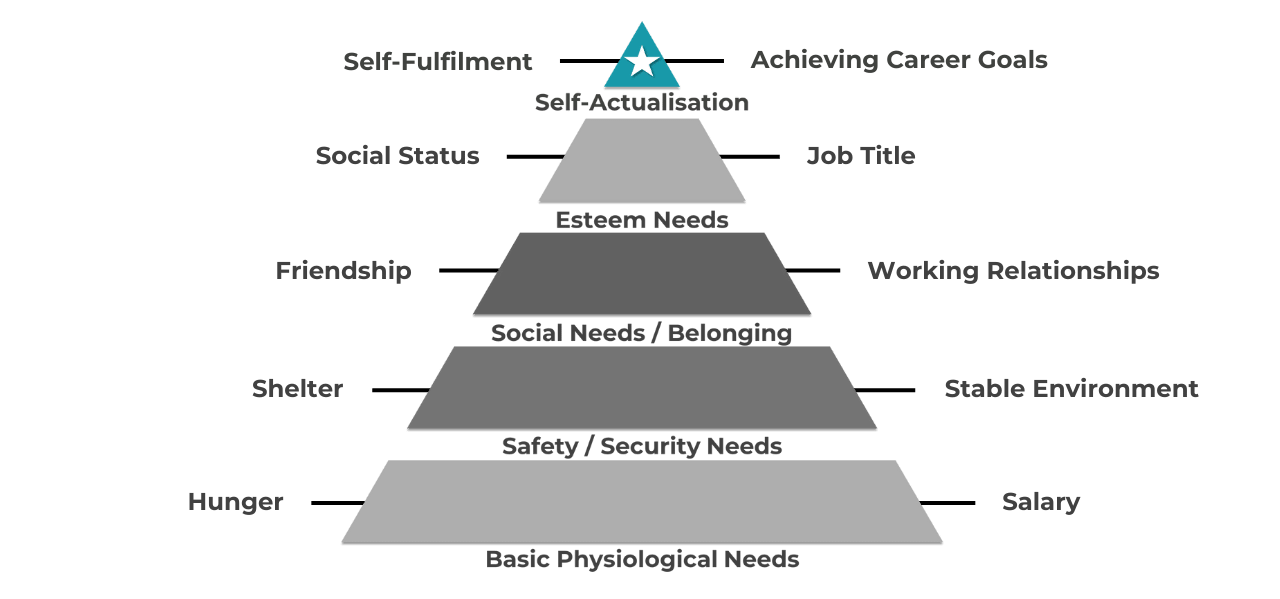
Whilst you will never know 100% how compatible you are with a job until you're working in it for a number of weeks or months.
The most important take-away for you is to get clear on your non-negotiables and don't bend these rules. As the non-negotiables that you waver on will often be the reason you need to leave the role in the end.
Hopefully this article has given some insights into how you can approach the thought process of being able to discern early on in the application or employment process of your potential alignment.
As always, I'd love to hear your thoughts and feedback.
To simplify things, I have collated a number of self-reflection questions from each of the 5 needs explored within the article and will have them listed below.
1. Does the remuneration cover my basic living needs?
-
What are my essential monthly expenses (rent/mortgage, utilities, groceries, healthcare, transportation)?
-
Does the salary offered comfortably cover these expenses?
-
Are there additional financial benefits or allowances that will ease my financial burdens?
-
How does the remuneration compare with industry standards for similar roles in my region?
2. Is the job stable, safe, and secure?
-
Is the position permanent, contractual, or temporary?
-
What's the organisations reputation?
-
Does the organisation have a history of high staff turnover?
-
Are the working conditions physically safe? Are there established protocols for employee safety?
3. Does the workplace culture resonate with my values?
-
What values are important to me (e.g., integrity, teamwork, innovation, work-life balance)? Am I able to engage in my meaningful social activities outside of work or does the schedule encroach on this (if it does, how much will it detract from my emotional well-being)?
-
Does the company's mission, vision, and values align with my personal and professional ethos?
-
What do current and former employees say about the company culture?
4. Will I be recognised, supported, and validated for my work?
-
Does the organisation have a clear performance review and feedback system?
-
Are there mentorship or peer support programs in place?
-
What kind of training and onboarding processes are present?
-
How does the organisation handle recognition? Are there awards, acknowledgments, or other forms of appreciation for employee contributions?
5. Are there growth opportunities within this role?
-
Are there clear career pathways or trajectories shared for the position?
-
Does the company invest in continuous learning or professional development for its employees?
-
Are there examples of employees who have grown within the organisation?
-
Is there room for lateral movement, allowing me to explore different roles?
References:
Maslow, A. H. (1943). A theory of human motivation. Psychological Review, 50(4), 370–396. https://doi.org/10.1037/h0054346
Nguyen, T. A. (2020). The Key Elements Impacting Employee Engagement. International Business.
Soni, B. (2013). Employee Engagement - A Key to Organizational Success in 21st Century. Voice of Research. 5-11.
Join the Research Round-Up
Free monthly newsletter, delivering the latest research straight to your inbox
Research Round-Up delivered at the end of each month

